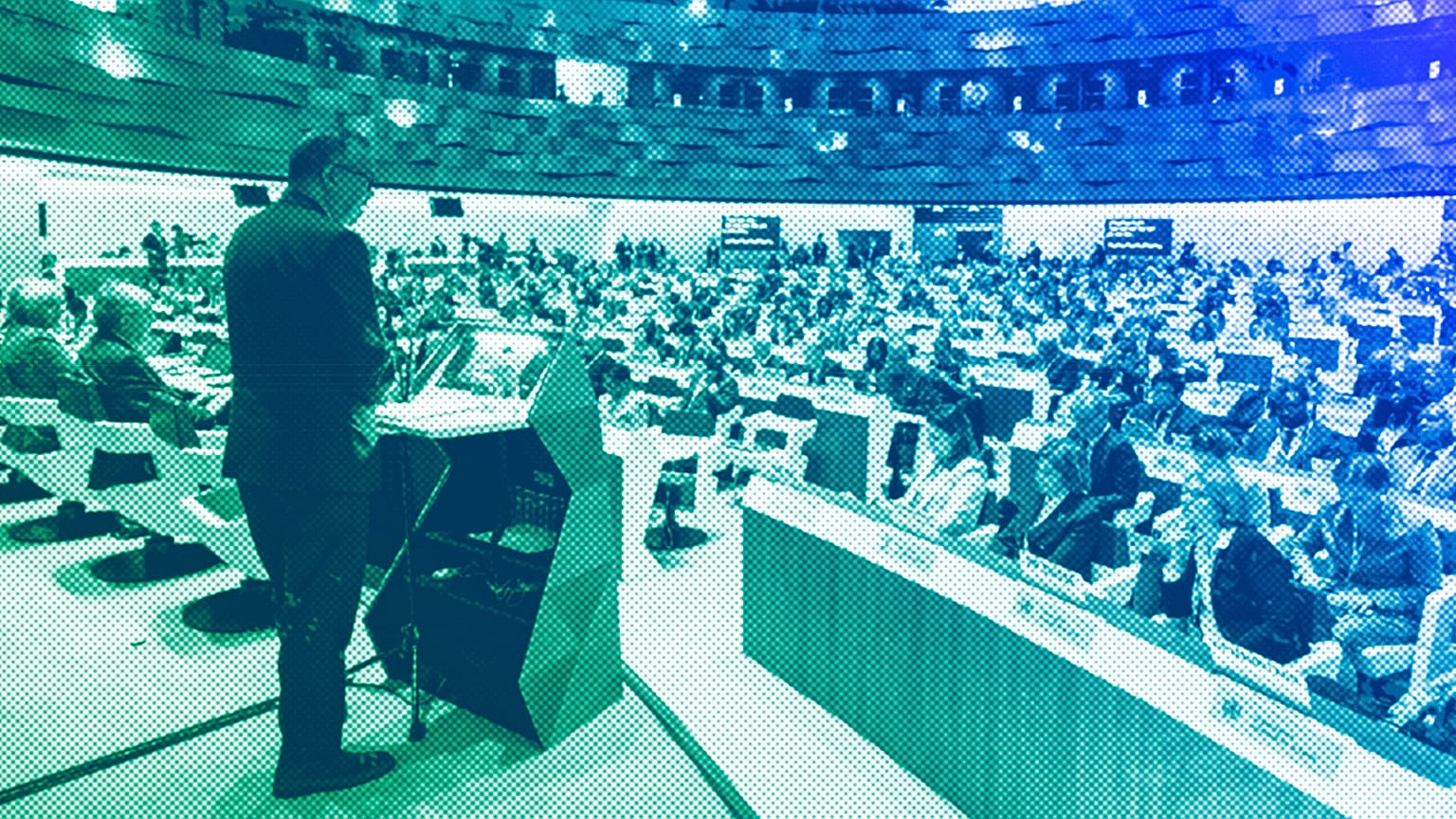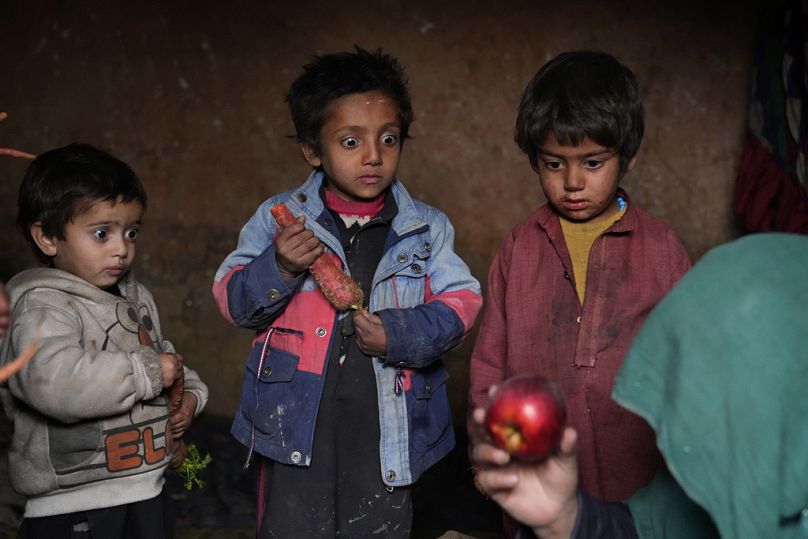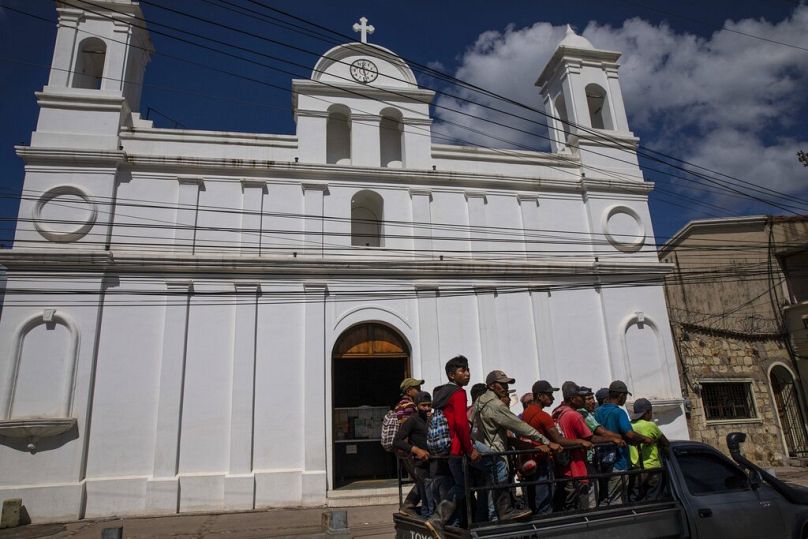By working together and leveraging technology, we can break down barriers, improve health outcomes and build a healthier, more sustainable future for all, Dr Naveen Rao writes.
As the 77th World Health Assembly gathers in Geneva, we have a unique opportunity to harness the power of collaboration.
This gathering can unite leaders from business, philanthropy, science, and communities to drive transformative change. Rather than dismissing any one sector, we must embrace partnerships to achieve the best outcomes.
For over a century, The Rockefeller Foundation has sought to ensure universal access to the latest medical technology, irrespective of geographical barriers. Initially termed “scientific philanthropy” by our founder, today, we call it “big bets”.
We have made many big bets to improve public health, from eradicating hookworm to ending COVID-19 lockdowns. These successes were built on innovative solutions, unlikely alliances, and rigorous progress measurement.
Now, we must apply the same principles to fight the greatest public health threat of our time: climate change.
Technological divides at the heart of growing disparities
Data clearly shows that climate change is the gravest threat to the health and well-being of billions of people. The pandemic exposed the fragility and inequality of our global health system, and climate change is exacerbating these issues.
This is our chance to reimagine this system to create opportunities for everyone.
The gulf between rich and poor countries continues to grow, with the UN Development Programme finding record levels of disparity between 2023 and 2024. This has grave consequences for the health prospects of developing countries, where lower life expectancy is common.
Children born into the poorest 20% of households face nearly double the risk of mortality before their fifth birthday compared to those in the wealthiest 20%. Additionally, developing countries account for 99% of annual maternal deaths worldwide.
At the heart of this disparity lies technological divides. While the digital revolution has transformed access to healthcare, education, and online resources, millions still languish on the wrong side of the technological abyss.
Factors like geography, gender, age, and ethnicity continue to dictate one's access to these transformative innovations.
Health outcomes of billions are in our hands
Yet, we must be optimistic. I believe that challenges bring great opportunities. Innovative partnerships between governments, the private sector, and philanthropy stand as our foremost ally in this endeavour. By championing equitable access to technology and fostering partnerships, we can revolutionise global health outcomes for billions.
Promising initiatives are emerging at the intersection of philanthropy, public health, technology, and government. For example, our partners at the Artificial Intelligence & Robotics Technology Park (ARTPARK) in India have developed a platform that integrates climate information into health data tools to forecast dengue outbreaks, which are increasing due to climate change.
By working with government stakeholders and local agencies, they created a dengue dashboard that updates decision-makers in real-time, helping target high-risk areas with testing and education campaigns. This tool covers 31 districts and 61 million people and is expanding to four other cities in India.
Additionally, an initiative in Gracias a Dios, Honduras, is integrating data collection with community action to reduce malaria cases exacerbated by the rise of mosquitos due to warming temperatures.
Local residents and Clinton Health Access Initiative (CHAI) mapped out affected areas, identified mosquito breeding grounds, and drained them with minimal resources. This effort reduced malaria cases from hundreds to just a few annually, demonstrating how proactive measures, rather than reactive responses, can effectively combat climate-related health threats.
Moreover, technology can help us predict and prepare for extreme heat events. Google, in collaboration with the Global Heat Health Information Network, has launched a new feature in its search engine to provide health tips during such events.
This initiative aims to help users in approximately 200 countries stay safe by offering evidence-based advice on managing heat exposure developed by experts from various health organisations.
This move aligns with global efforts to enhance public awareness and preparedness in response to the increasing frequency of heatwaves due to climate change.
True transformation requires unlikely partnerships
This is what big bets are all about: bringing people together to learn, collaborate, share, and scale solutions.
Achieving true impact requires the collective effort of many. As demonstrated by the role of business at COP28, public-private partnerships are crucial in the fight against climate change. The global health community must follow suit, starting with discussions at the World Health Assembly.
At the World Health Assembly, climate change is at the top of the agenda, with the newly approved resolution and the 14th General Programme of Work, including climate as one of six strategic priorities.
However, governments alone cannot shoulder this responsibility; we all must prioritise health and climate adaptation efforts because climate change threatens to unravel decades of progress in achieving health for all.
True transformation requires unconventional alliances. Whether it be the collaboration between tech giants and humanitarian organisations to deploy drones for disaster relief or the synergy between academia and industry to develop breakthrough treatments, these alliances underscore the boundless potential of collective action.
We must embrace what some may view as “unlikely partnerships” as the best means to achieve global health equity. The challenges we face are too great for any one sector to solve alone.
By working together and leveraging technology, we can break down barriers, improve health outcomes and build a healthier, more sustainable future for all. The World Health Assembly is our chance to make these big bets and drive real change. Let’s seize it.
Dr Naveen Rao is Senior Vice President, Health at the Rockefeller Foundation.
At Euronews, we believe all views matter. Contact us at view@euronews.com to send pitches or submissions and be part of the conversation.




















